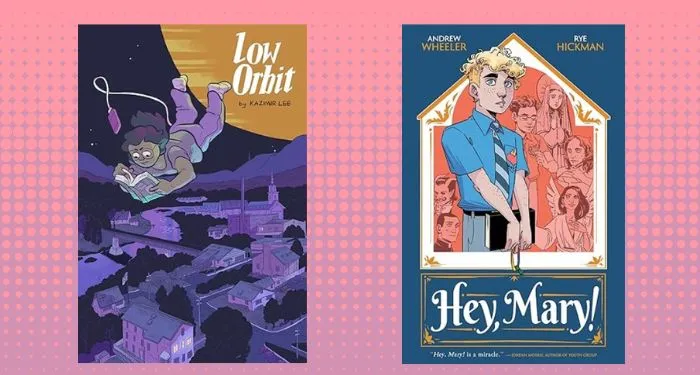I’ve always been fascinated by alien invasion stories. In my opinion, these books aren’t just thrilling sci-fi adventures – they also reflect our hopes and fears about life beyond Earth. Lately, with real-world discussions about UFOs and the possibility of extraterrestrial life, I think invasion narratives feel more relevant than ever. We’re culturally captivated by the idea of first contact turning hostile, and alien invasion books let us explore how humanity might react if we’re no longer alone (or no longer safe) in the universe.
From epic battles for Earth’s survival to eerie slow-burn takeovers, alien invasion tales come in many flavors. This list features five recent releases (2022–2025) that I found especially compelling, plus one older classic (Battlefield Earth, republished in 2016) that still resonates today. Each of these novels offers a different spin on the “aliens attack” scenario. Some are action-packed and pulse-pounding, while others are more introspective or twisty. But in my opinion, all six capture that irresistible mix of wonder and terror that makes alien invasion stories so much fun.
So, if you’re looking for some out-of-this-world reading, here are my top six recommendations:
<h3>Generation of Vipers, by Peter Cawdron (2022)</h3>
I’ll start with Peter Cawdron’s Generation of Vipers, which to me is one of the smartest modern alien invasion novels. It’s actually part of Cawdron’s long-running first-contact series, but don’t worry – I read it as a stand-alone and had no trouble diving in. The story picks up after humanity detects a mysterious comet-ship near Saturn, and now the nightmare scenario is coming true: aliens have arrived, and not in peace. What I loved about Generation of Vipers is how it balances high-stakes action with thought-provoking science. The aliens don’t just drop from the sky shooting lasers; they appear suddenly at the NASA Johnson Space Center in Houston, unleashing bizarre monsters and even a lethal microbial plague. That combination of physical and biological threats kept me glued to the page, and I found myself appreciating how plausibly Cawdron explains the invasion. (He even includes a detailed author’s note on the science – the nerd in me was delighted!)
Another thing I enjoyed was the cast of characters. We follow scientists and military folks – like Kath, a biologist trying to analyze the alien microbes, and Colonel Landis, who has to decide whether to nuke Houston to contain the outbreak. Cawdron writes these characters with a lot of empathy, and in my opinion, their personal struggles (and occasional conflicts with each other) make the cosmic-scale drama feel human. There’s also a subplot about government and media misinformation (hence the “vipers” of the title referring to human troublemakers), which gave the story an extra layer of realism. By the end, I was impressed with how Generation of Vipers delivered blockbuster excitement and intelligent commentary. It’s a gripping alien invasion tale that feels scarily plausible in today’s world. If you like science-rooted sci-fi with heart, give this one a try.
<h3>Conquest, by Nina Allan (2023)</h3>
Nina Allan’s Conquest is a very different kind of alien invasion book – quieter, more literary, but absolutely fascinating. I’ll admit, I picked this up expecting starships and battles, but what I got was a mind-bending mystery that blends sci-fi with detective noir. And in my opinion, it totally worked. The premise: a socially awkward coder named Frank becomes obsessed with the idea that aliens have secretly invaded Earth. Frank disappears, and his girlfriend Rachel teams up with a private investigator to find him. As they search, they uncover layers of conspiracy, including a weird 1950s sci-fi story that might be a “guidebook” to the invasion. There aren’t epic war scenes in Conquest; instead, the book explores the psychology of believing in (or denying) an alien threat. I found myself drawn in by the suspense and the many narrative textures – diary entries, film reviews, even chunks of that fictitious 1950s sci-fi tale are embedded in the novel. It feels like a puzzle.
Reading Conquest was a unique experience. The whole time I was asking myself: is Frank delusional, or is there really an alien plot? The story kept me off-balance in a good way. Allan’s personal voice comes through strongly – she clearly loves classic sci-fi and music (Frank is a Bach fanatic), and she uses those passions to deepen the story. In my opinion, this novel shines because it isn’t just about aliens; it’s about human connection and how far someone will go for what they believe is the truth. The tone is introspective and even melancholic at times, but I never found it dull. On the contrary, I appreciated the break from bombastic tropes. If you’re in the mood for a thoughtful, genre-blending take on an invasion narrative – one that might leave you questioning what’s real – Conquest is a rewarding read. It’s not your typical alien invasion thriller, but that’s exactly why I liked it so much.
<h3>Some Desperate Glory, by Emily Tesh (2023)</h3>
Emily Tesh’s debut novel Some Desperate Glory absolutely blew me away. I have to say, this one is intense – it’s set in the aftermath of an alien invasion rather than the beginning, and it takes you on a wild ride of revenge, rebellion, and even redemption. The story follows Kyr, a teenage girl raised in a secret military base after Earth has been destroyed by a hostile alien empire. Kyr has spent her whole life training to avenge the planet, indoctrinated to believe it’s humanity’s righteous duty to strike back. What I loved (and sometimes found gut-wrenching) was how the book puts us in Kyr’s head as she begins to question everything she’s been taught. Early on, she’s fanatical and frankly unlikeable – but in my opinion, that’s what makes her character arc so powerful. Watching Kyr confront uncomfortable truths, unlearn her hatred, and make truly hard choices had me cheering by the end.
Don’t think it’s all introspection, though – Some Desperate Glory also has plenty of action and a plot that accelerates into mind-bending territory. Without giving spoilers, I’ll just say it involves a risky mission to strike at the alien enemy, unexpected alliances (including with one of the aliens), and even some time-bending twists. There were moments I literally gasped at the revelations. The personal tone of Kyr’s narration made everything hit harder – I felt her anger, her grief, and eventually her hope. Tesh writes in a way that’s both heartfelt and unflinching; she doesn’t shy away from the darkness of war and fanaticism. In my opinion, this novel stands out because it’s as much about fighting the hatred within as it is about fighting aliens. By the final chapters, I was emotionally wrecked in the best possible way. Some Desperate Glory is a daring, completely engrossing spin on the alien invasion genre – one that challenges you to think about the costs of revenge. It’s easily one of my favorite reads of 2023.
<h3>The Mercy of Gods, by James S. A. Corey (2024)</h3>
If you’re craving an epic, large-scale alien invasion saga, The Mercy of Gods delivers in spades. This 2024 release is by James S. A. Corey (the duo behind The Expanse), and as a big fan of their previous work, I had high expectations. I’m happy to report that The Mercy of Gods met them – though it’s a different kind of story than The Expanse, more of a classic space opera with a twist of Planet of the Apes in reverse (here, humans are the downtrodden). The novel is set on a distant human colony planet called Anjiin, which gets conquered by an imperial alien species known as the Carryx. These Carryx are brutal overlords who basically tell the humans: prove you’re “useful” to our empire or face extermination. I found this setup immediately gripping and terrifying. Imagine humanity reduced to a subjugated class, taken to an alien world, and forced to collaborate or die – it’s an invasion scenario turned into a tale of captivity.
What I personally loved about The Mercy of Gods is that it’s not just humans vs. aliens; it also dives into the moral dilemmas among the humans themselves. The story follows a group of scientists and officials with different reactions – some want to resist the Carryx at all costs, others consider cooperation to survive. There’s plenty of tension and scheming. The authors’ style brings a lot of gritty realism to how people might behave under extreme oppression. And true to Corey form, there are some awesome action sequences and technological wonders. (Yes, there are space battles and clever science bits – I geeked out over those.) But I’ll admit I was equally hooked by the quieter moments, like the humans trying to understand the Carryx culture, or grappling with whether turning into “monsters” themselves is the only way to win. In my opinion, this novel lays the groundwork for an incredible new series. It left me thinking about colonialism and empire, but also gave me that page-turning excitement of a great sci-fi blockbuster. I can’t wait to see where the sequels go – but for now, The Mercy of Gods earns its spot as one of the top alien invasion books of recent years.
<h3>Overgrowth, by Mira Grant (2025)</h3>
I’ve been eagerly anticipating Mira Grant’s Overgrowth, which is brand new in 2025 – and let me tell you, it’s one heck of a creepy-cool twist on the invasion genre. Grant (a pseudonym of Seanan McGuire) is known for blending horror with sci-fi, and in my opinion Overgrowth might be her wildest blend yet. The elevator pitch floating around was “Annihilation meets Day of the Triffids,” and that’s spot on. Instead of little green men or giant warships, the invaders here are alien plants – or something like plant/fungus hybrids – that slowly infiltrate Earth’s ecosystem and, well, us. The story centers on Anastasia “Stasia” Miller, who as a child insisted she was an alien left on Earth. Nobody believed her… until an extraterrestrial signal is detected and all those weird vines and pods start showing up. Suddenly Stasia’s lifelong “delusion” doesn’t seem so crazy, and she might be the key to understanding the invasion.
What I loved about Overgrowth is how it starts almost like an urban legend or psychological thriller – is Stasia just disturbed? – and then blooms (pun intended) into full-on apocalyptic horror. Grant has a personal, conversational style that made me feel like I was experiencing the nightmare alongside the characters. There are scenes in this book that honestly made my skin crawl (in a good way!) – the descriptions of alien tendrils creeping through neighborhoods, or people undergoing… let’s say botanical transformations. Yet, amidst the scares, Overgrowth also has heart. Stasia’s journey is about belonging and identity just as much as it’s about killer flora. I found myself empathizing with her loneliness and determination. By the climax, when the alien “green storm” fully erupts, I was both terrified and oddly moved. In my opinion, Overgrowth is a standout because it makes the alien invasion deeply personal – it’s not just about saving the world, it’s about Stasia finding her place in it. If you enjoy sci-fi horror with a lot of atmosphere and emotion, put this one on your reading list. Just maybe don’t read it while eating your veggies.
<h3>Battlefield Earth, by L. Ron Hubbard (2016 edition)</h3>
I couldn’t make a “top alien invasion books” list without including Battlefield Earth, a classic that was re-released in a special edition in 2016. This book is a brick (over 1,000 pages!), and it’s unapologetically old-school, but in my opinion it’s still a blast to read in 2025. The story is set in the year 3000, long after vicious aliens called the Psychlos have conquered Earth and nearly wiped out humanity. A young hero named Jonnie Goodboy Tyler rises from a primitive human village and sets out to challenge the Psychlos who dominate the planet. What follows is an epic adventure spanning continents, space battles, and the fate of the human race. It’s pure pulp sci-fi – think giant alien villains, daring escapes, and big explosive showdowns. I have a soft spot for this kind of thing, and Battlefield Earth delivers the fun in spades.
Reading it now, I find Battlefield Earth charming in its straightforward optimism. It’s very much a tale of good vs. evil, with humanity as the scrappy underdog fighting technologically superior oppressors. The book doesn’t shy away from portraying the Psychlos as truly nasty (they enslave humans and strip-mine the planet), which makes their eventual comeuppance incredibly satisfying. Sure, some elements feel a bit dated or over-the-top – Jonnie is almost too heroic at times, and the prose can be melodramatic – but honestly, that’s part of the appeal for me. It feels like a grand 1980s sci-fi blockbuster between covers. I also think it’s interesting how the novel touches on themes of guerrilla warfare and resistance. Despite the fantastical elements, seeing humans unite across cultures to fight back is inspiring. If you’ve never read it, don’t let the campy film adaptation scare you off; the novel itself is far better and more expansive. In my experience, Battlefield Earth remains relevant as a celebration of human resilience. It’s the kind of story that reminds me why I fell in love with sci-fi in the first place – big imagination, big stakes, and a big heart at its core.
Final Thoughts
Alien invasion books tap into something primal – our fear of the unknown, but also our courage and ingenuity when faced with extinction. As we head through 2025, the genre is alive and kicking, from fresh voices adding new twists to classics that still resonate. Personally, I find that these stories, whether cerebral or action-packed, all ask the same compelling question: what does it mean to be human when we’re no longer the dominant species? The answers vary – some books celebrate our capacity to band together and fight back, others highlight our flaws and follies – but the question is always worth exploring.
In my opinion, the continued popularity of alien invasion tales shows that we’re still collectively grappling with our place in the universe. Are we alone? If not, will the “others” be friendly or hostile? And if worst comes to worst, can we overcome our differences to survive something truly alien? These six books offer entertainment, yes, but they also offer a kind of hopeful reassurance. Even in the darkest scenarios of conquest and apocalypse, humanity finds a way to endure (or at least goes down swinging!). That’s why I keep reading them. The genre evolves with the times – incorporating modern science, diverse perspectives, and new fears – yet the core appeal remains the same. Alien invasion stories continue to matter in 2025 because they let us test our mettle against the ultimate challenge, all from the safety of an armchair. And who knows? If or when we ever do encounter aliens, maybe all this imaginative preparation will pay off. Until then, happy reading… and keep watching the skies!
My profession is online marketing and development (10+ years experience), check my latest mobile app called Upcoming or my Chrome extensions for ChatGPT. But my real passion is reading books both fiction and non-fiction. I have several favorite authors like James Redfield or Daniel Keyes. If I read a book I always want to find the best part of it, every book has its unique value.



















 English (US) ·
English (US) ·